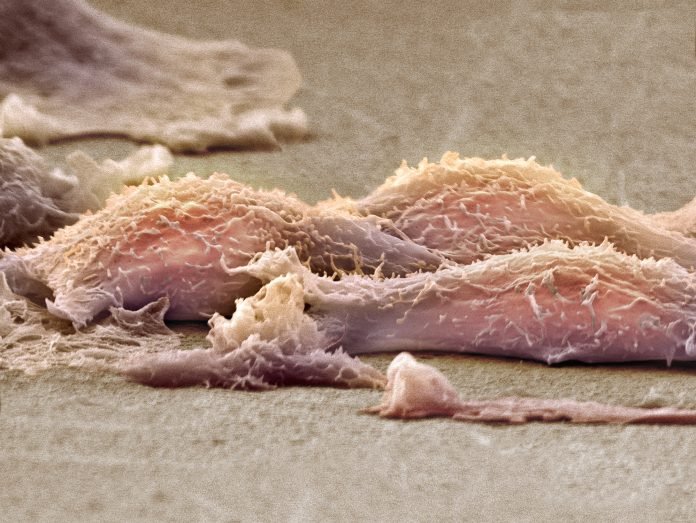
Next-generation sequencing (NGS)–based molecular profiling for non–GI stromal tumor (non-GIST) sarcomas can guide clinical management in at least a small percent (about 18%) of patients, say researchers from the Moffitt Cancer Center in Tampa, Florida. The findings were based on data from a study of 114 patients at the Center.
“We found that clinical management was affected by NGS results in a small but notable percentage of patients, including those with a diagnosis change (4.4%) and/or in whom therapeutic selection was altered by the treating physician because of findings (13.2%),” they wrote. The authors reported their findings in JCO Precision Oncology. Four of 15 (26.7%) of the NGS-influenced systemic therapies resulted in clinical benefit.
“The genes most commonly affected by pathogenic mutations in our cohort mirror those most widely reported in sarcomas to date,” the authors reported. NGS detected 438 genetic variants among the collection of 114 tumors presumed to be oncogenic. Almost every tumor had at least one driver variant (96.7%), and the median number of driver variants per tumor was 3 (range, 0 to 19). Regardless of sarcoma subtype, the most common alterations were in TP53 (36.8%), CDKN2A/B (20.2%), CDK4/MDM2 (19.3%), ATRX (13.2%), and RB1 (13.2%). About 60% of alterations were structural, including 157 amplifications and 66 copy-number losses.
Sarcomas account for just 1% of all adult cancer, but there are more than 50 subtypes of these mesenchymal tumors. Up to 40% of sarcomas are in soft tissue, but beyond that it is often difficult for even specialists to classify these tumors. However, specific molecular drivers have been identified in a significant percentage of them. Also, in the early 2000s, a notable success in molecular targeting was the development of tyrosine kinase inhibitors against KIT or PDGFRA for advanced GI stromal tumors.
In this study, patients underwent molecular profiling on the same comprehensive genomic panel on a commercial platform. The authors performed a chart review to retrospectively collect treatments and outcomes data and confirm pathology findings. “Clinically actionable” genetic alterations were determined by the testing company and review with Moffitt’s internal cancer databases. The authors also checked whether alterations had been previously documented as “providing diagnostic or prognostic information or to predict response or resistance to commercially available or investigational agents.”
The group used Moffitt’s Personalized Medicine Clinical Service (PMCS) database to identify the non-GIST sarcoma patients who underwent commercial genomic testing between May 2013 and March 2017. PMCS is a gene expression database that links a tumor’s molecular profile to other clinical and historical information. http://www.bio-itworld.com/newsitems/2007/june/06-01-07-personalized-medicine/ It’s is standard at Moffitt to check PMCS against any pathology findings from solid or hematologic malignancies from patients who undergo commercial genomic sequencing.
Each patient’s genomic findings were also included in the Clinical Genomic Action Committee (Moffitt Molecular Tumor Board) database. That database includes demographic, clinical, and histologic information, such as the type of genomic test and the source of biopsy specimen. Each gene, mutation, and allele frequency or copy number along with microsatellite status and mutation burden, are also recorded.
“To our knowledge, this is one of the largest sarcoma-specific analyses of this type to date,” the authors wrote. They added that these results are, “…remarkably consistent with the limited published literature of the experience of clinical genomic profiling in sarcoma to date.”













